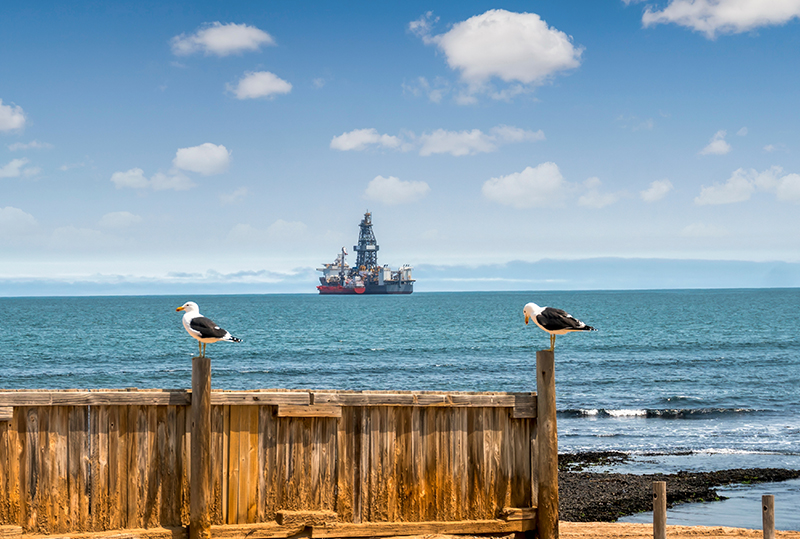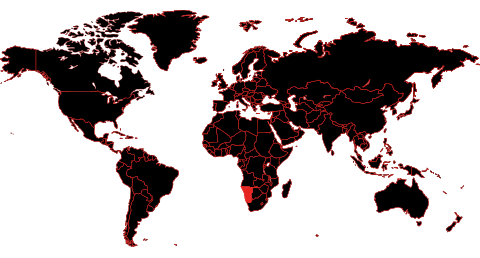Why TotalEnergies is Betting on Namibia’s Oil Future
A New Era for Namibia’s Energy Industry
2023 is shaping up to be the most important year in Namibia’s energy history. First, Shell struck oil with Jonker-1X, then Galp confirmed hydrocarbons with Mopane, and now TotalEnergies’ Venus discovery is proving that the Orange Basin is one of the most exciting oil frontiers in the world.
Venus isn’t just another discovery—it’s the largest offshore oil find in Namibia to date and has the potential to completely transform the country’s economic trajectory. But is Namibia ready to handle what comes next?
TotalEnergies is making a long-term bet on Namibia’s energy sector.
The question now is: How will Namibia respond?
Why the Venus Discovery is a Game Changer
The Venus-1X well, first announced in February 2022, was already considered a significant find. But as TotalEnergies continues appraisal drilling in 2023, it’s becoming clear that Venus may be bigger than expected.
• The Largest Offshore Oil Find in Namibia – Early estimates suggest Venus holds billions of barrels of recoverable oil, making it a supergiant discovery.
• TotalEnergies is Not Backing Down – Instead of taking a wait-and-see approach, the company is doubling down on Namibia, committing to further exploration and production planning.
• The Commercial Viability Question is Being Answered – Unlike some early-stage discoveries that remain speculative, Venus is proving to be a viable oil play with high-quality reservoirs.
What this means is simple:
Namibia is no longer just an emerging player—it is a serious contender in the global oil market.
Why TotalEnergies is Going All-In on Namibia
TotalEnergies operates in over 130 countries, with vast oil reserves in the Middle East, West Africa, and the Americas. So why is it prioritizing Namibia in 2023?
A. The Orange Basin is Becoming a Global Hotspot
The more drilling happens, the more the geological puzzle is coming together. Venus-1X confirmed what many suspected: Namibia’s offshore plays mirror the massive oil reserves found in Brazil and Guyana.
For energy giants like TotalEnergies, that means one thing: high-reward investments with relatively low risk.
B. A Rare Opportunity to Lead in a New Market
Unlike Nigeria or Angola—where oil majors have operated for decades—Namibia is a fresh market. The government is still shaping policies, infrastructure is still being built, and TotalEnergies has the chance to become a foundational player in shaping the country’s oil industry.
This kind of first-mover advantage is rare in the oil business.
C. The Energy Transition Strategy
TotalEnergies is actively shifting toward a low-carbon future, investing in renewables while still maintaining a strong oil portfolio. Namibia’s low-emission, deepwater oil plays align well with this strategy.
Instead of high-cost, high-risk oil projects in politically unstable regions, Namibia offers a stable, investment-friendly environment with world-class geology.
For TotalEnergies, it’s a logical long-term investment.
The Next Steps: Moving from Discovery to Production
Discovering oil is one thing—getting it out of the ground is another.
Venus-1X is still in the appraisal stage, meaning TotalEnergies is studying the reservoir to determine how much oil is technically and commercially recoverable.
What’s happening now:
• Additional Wells – The company is drilling Venus-2X and other exploration wells to further define the size of the oil field.
• Reservoir Analysis – Teams are evaluating fluid composition, pressure, and production potential.
• Investment Planning – TotalEnergies is working with the Namibian government to discuss infrastructure, export routes, and development timelines.
If everything continues as expected, we could see first production from Venus within the next five to seven years.
What This Means for Namibia’s Energy Future
Venus is more than just a business success for TotalEnergies—it is a defining moment for Namibia.
A. Economic Growth is Now a Matter of Execution
• The government must finalize oil and gas regulations to ensure a fair but competitive industry framework.
• Revenue from oil must be managed transparently to avoid corruption and economic mismanagement.
• Local businesses and workers must be integrated into the supply chain to maximize national benefits.
B. Infrastructure Development Must Move Quickly
• Deepwater drilling requires export facilities, pipelines, and processing centers—these must be built before first oil is produced.
• Namibia has an opportunity to build a refinery instead of exporting raw crude, creating more value within the country.
C. Namibia Must Avoid the Mistakes of Other Oil Nations
The world has seen many oil-rich nations fail to turn resources into long-term prosperity. Namibia must ensure that:
• Wealth is reinvested into sectors like education, healthcare, and manufacturing.
• Policies protect national interests while still attracting foreign investment.
• A sovereign wealth fund is established early to secure oil revenues for future generations.
The Venus discovery is more than just another well—it is a defining moment for Namibia’s energy industry.
TotalEnergies is making a long-term commitment to Namibia because they see what many are beginning to realize:
Namibia is not just another oil-producing country. It is a future energy hub.
But discoveries alone do not build economies. What happens in the next five years will determine whether Namibia truly capitalizes on its potential.
The path is being paved. Now, the country must decide how to walk it.
Key sources:
• Event Reference: TotalEnergies began appraisal drilling on Venus-1X in April 2023.
•TotalEnergies Press Briefing (Apr 2023) – Venus-1X: Confirming Namibia’s Supergiant Oil Play
•OilPrice.com (Apr 2023) – How TotalEnergies is Expanding Its Investment in Namibia
•Namibia Energy Outlook (Apr 2023) – The Next Steps for Venus-1X and Namibia’s Oil Future
Earth Day 2025 – Our Power, Our Planet
“Our Power, Our Planet” — the theme of Earth Day 2025 — is not just a rallying cry for envir
Positioning Namibia’s Youth at the Center of Its Energy Future
Namibia stands at a pivotal moment in its national development, faced simultaneously with a signific
What Every Namibian Student and Entry-Level Professional Should Know About the Upstream Oil & Gas Sector
The upstream oil and gas industry in Namibia is no longer a theoretical possibility—it is a rapidl




